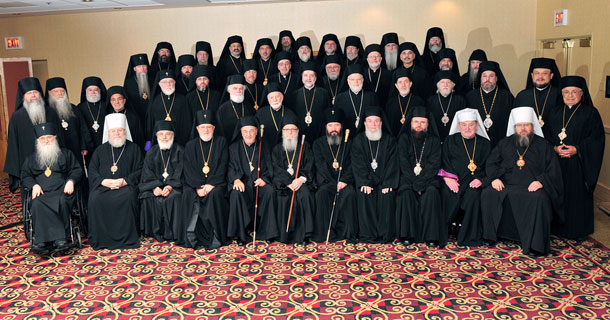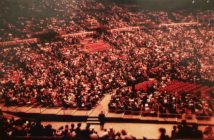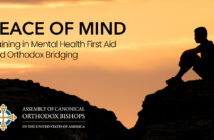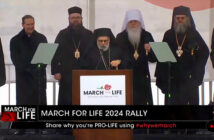 Source: Orthodox Christian Network
Source: Orthodox Christian Network
In all of God’s earthly creation, only the human person has the ability to ask questions and seek answers. Asking questions reflects the fact that men and women are created in the image and likeness of God. Asking questions is also part of the gift of reason and therefore needs to be cultivated with virtue and compassion. In America’s highly charged political climate, every question asked is considered suspect for its motives. However, questions in the Orthodox Christian Tradition are not viewed with suspicion but are instead welcomed with open arms.
Orthodoxy does not view posing a question as an act of disobedience but as an act of fidelity to the Church. Questions are part of a healthy faith. Orthodox Christians are faithful to their inheritance when they ask questions and seek truthful answers. Jesus Christ himself learned by asking questions: The Gospel of Luke tells us that “Three days later they finally discovered Jesus in the Temple, sitting among the religious teachers, listening to them and asking questions.” (Luke 2:46) Throughout his earthly ministry, Christ responded to questions from all those around him with love, often using the questions of others to teach eternal truths (John 9:1-5). A healthy Orthodox Faith is not one of mindless obedience, but one of endless loving inquiry. Questions about our faith know no bounds because God in his love knows no bounds.
The Assembly of Canonical Orthodox Bishops of the United States of America will be holding a question and answer session on Monday, September 15, 2014 in Dallas, TX as part of their annual meeting. America’s bishops will be present for this occasion to respond to the questions of their spiritual children with paternal guidance. This event is a blessing, for it is an opportunity to collaborate with our hierarchs and grow the Church in America. It is also an occasion to more deeply discover our vocation as Orthodox Christians and answer the call of Christ to “Go and make disciples.”
In the spirit of this invitation to ask questions of the Church, here are ten questions on the subject of work of the Assembly of Bishops and the historic Great Council of the Orthodox Church that will be held in 2016.
1) Does the Assembly’s vision of Orthodox Unity in America include ecclesiastical autocephaly or an alternative vision of unity such as the possibility of all jurisdictions uniting under a single mother Church?
2) Does the canonical planning of the Assembly include establishing a diocese for the majority of member bishops? In the future, will bishops of one ethnicity govern parishes of a different ethnicity?
3) What challenges do the changing marriage laws of the United States present to the Church in America?
4) For the purposes of understanding a variety of contemporary human life issues: When do human rights/human personhood begin?
5) In areas where parishes are extremely close geographically and efforts are often duplicated, does the work of the assembly include merging parishes much like the case of the Holy Trinity and Holy Resurrection parishes in Tennessee?
6) What will the role of the laity be in the Great Council of 2016? Will women be able to participate in the Great Council as members of a church delegation?
7) Does holding the Great Council of 2016 in Turkey with its poor history of religious freedom limit the ability of all Orthodox bishops to freely conduct the work of the Council without impediment or interference?
8) How does the ongoing persecution and martyrdom of Christians in ancient Orthodox lands impact the mission of the Church in America?
9) What is the future of youth and campus ministry? What can be done to reach more youth who have fallen away from the Church?
10) In countries such as Greece, Orthodoxy is the official religion of the state. What is the role of Orthodox Christianity in shaping the public life of the United States of America, which does not have a large Orthodox Christian population?
The work of the Assembly of Bishops represents a new and exciting chapter for the Church in America. Every Orthodox Christian has the capacity to contribute to this process in their own parishes by being faithful to their own questions. Not everyone can be in Dallas on September 15th to present their questions to the Church, but everyone can, through prayer, study and the sacraments, find the answers they are seeking. No question is irrelevant because every question can help us discover Christ again and again.
The American Poet Walt Whitman once wrote in Leaves of Grass, “Oh me! Oh life! of the questions of these recurring,. . . That you are here—that life exists . . . That the powerful play goes on, and you may contribute a verse.”
What will your verse for Christ be?
What is your question for the Church?
You are welcome to ask your questions in the comments section below. And may God grant the Assembly of Bishops the continued ability to rightly divide the word of God’s Truth and many, many years of faithful service to the Church in America!
[subscribe2]



